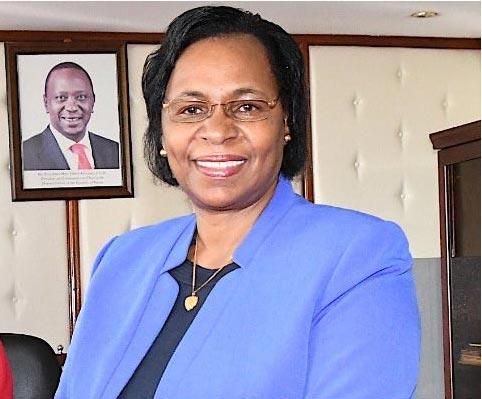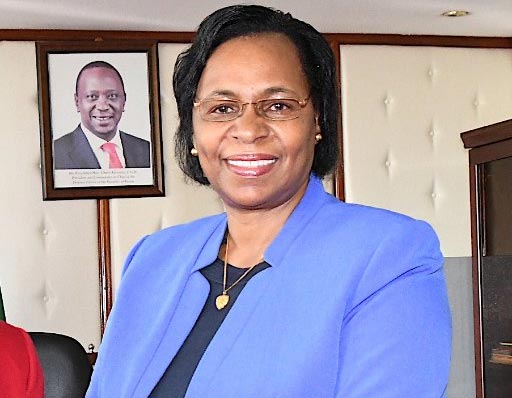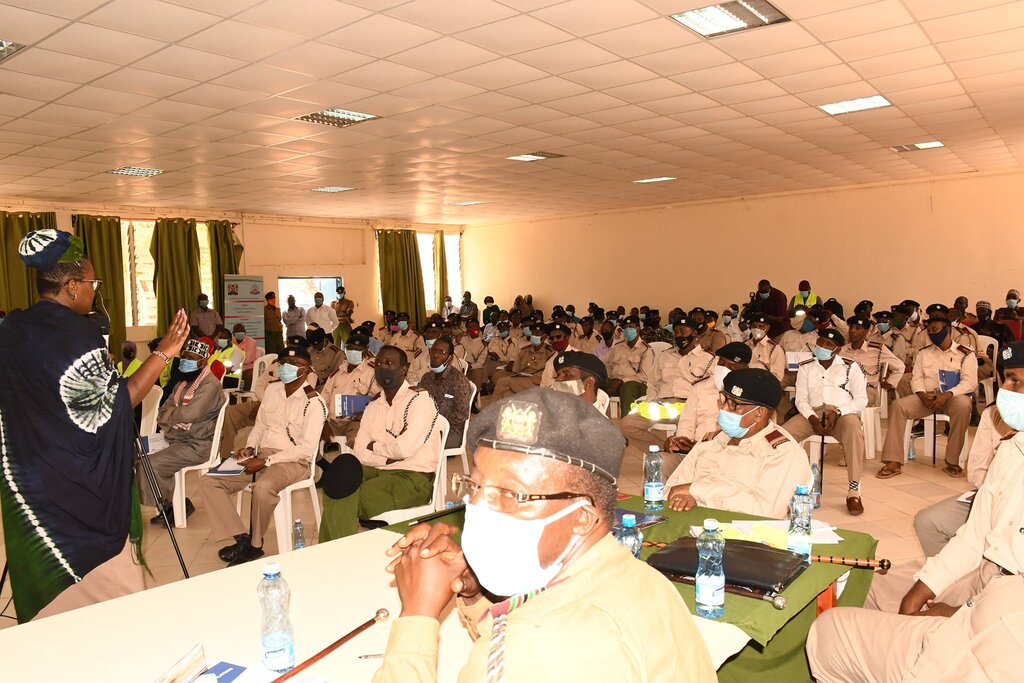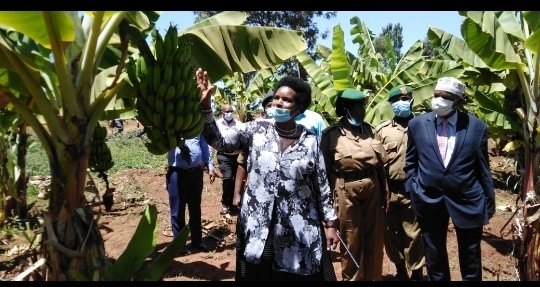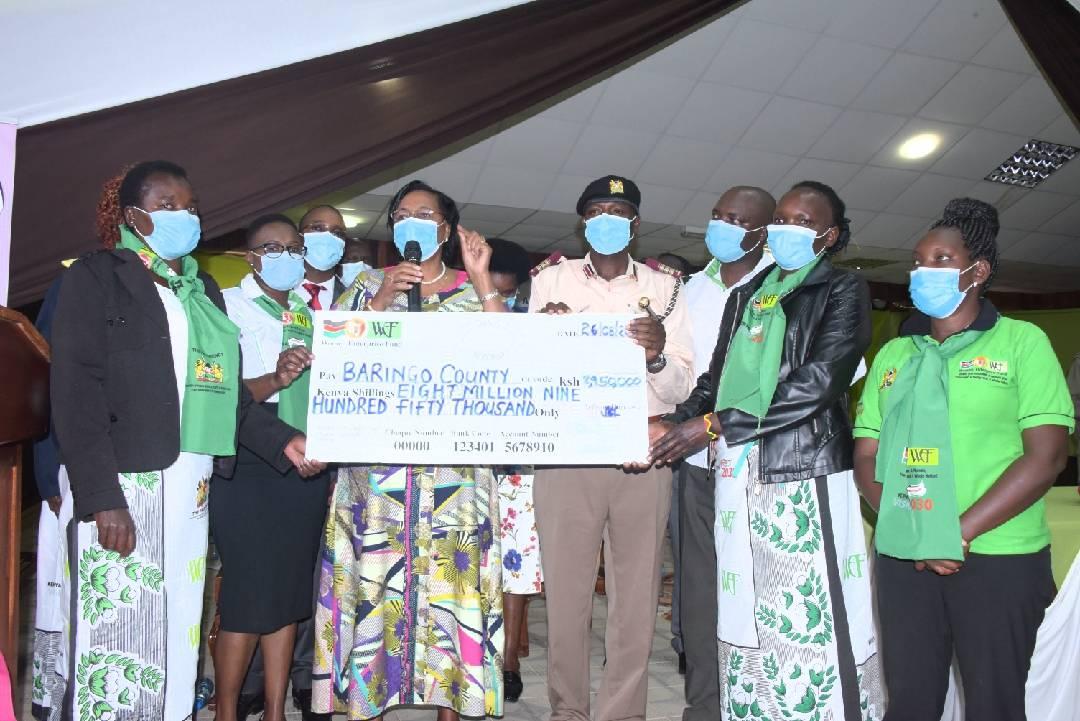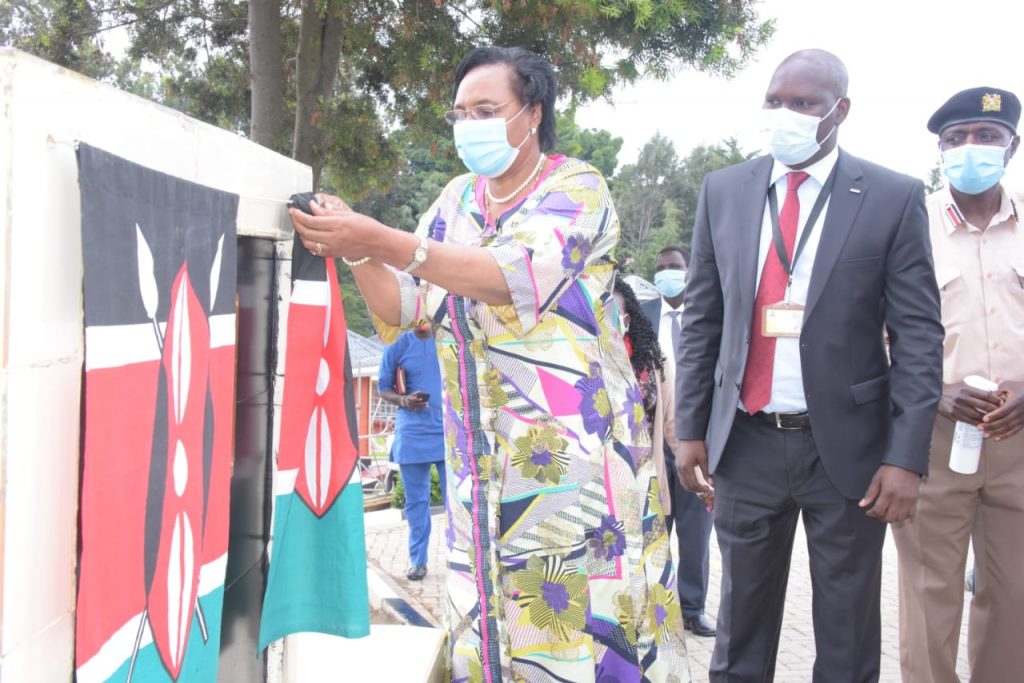QUESTION: The current accumulated pensions bill is estimated at Sh100 billion annually, and with the pending unprocessed applications and thousands others hitting or nearing retirement age there is a real possibility of aggregate pensions clocking Sh159 billion in next the two years. What is the government’s policy to tame spiraling pensions bill? Could the government consider consolidating all pensions under the Retirements Regulatory Authority? Elly Owiny Kotieno, Kisumu
ANSWER: The pension wage bill has continued to increase over the years and is projected to increase to over Ksh. 100 billion in the current Financial Year 2020/21. To ensure sustainability of the Public Service pension wage bill, the Government is implementing pension reforms including harmonization of pension policies for the Public Service and introduction of a contributory pension scheme for Public Servants. It is already work in progress. The Government has gazetted 1st January 2021 to be the commencement date of the Public Service Superannuation Scheme (PSSS) Act. The employee and employer contribution will be at the rate of 7.5% and 15% of the basic salary respectively. This aims to bring under control the spiraling pension expenditure in the medium and long term and free more resources for Government development projects in other critical sectors of the economy.
The PSSS scheme covers Teachers, Civil Servants and Disciplined Services (Police, Prison officers and NYS) and any other service that the Cabinet Secretary for the National Treasury determines as ‘public service’ for the purposes of the Act. The PSSS, like other Public Retirement Pension Schemes is under the regulation of the Retirement Benefits Authority (RBA).
The Scheme has several benefits to the members: allowing employees to transfer their services to other employers without losing their pension benefits; access to own accumulated contributions and 50% of Government contributions on exiting the service; reduction of tax level as monthly contributions by employees of up to 30% of their basic salary or Ksh. 20,000 whichever is lower will be tax deductible; it ensures involvement of the employees and members in the management of their retirement fund through participation in the Board of Trustees in accordance with the Retirement Benefits Authority. This in essence enhances a sense of ownership and oversight of the management of the fund. The pension reforms are continuing and going forward the vision is to have various pension schemes consolidated to ensure common norms and standards for public servants.
QUESTION: Cabinets traditionally all the over the world are the crème de la crème of policy leadership in the republic. The cabinet is the chief steward of political and economic direction of any country. Distinguished women like you and men of valour and honour join the cabinet out of patriotism and devotion to the cause espoused for the nation by the President. To Cabinets therefore, governments are not sources of income or capital investments where profit springs. From this background can we trust the cabinet that it means well for the country when you are fronting selfish agendas in these difficult times Kenyans are going through? Ann Njoki Njung’e, Limuru
There are principles of governance that inform the conduct of public servants and these are clearly articulated in various Articles of the Constitution. Chapter Six on Leadership and Integrity prescribes the conduct of State Officers and Chapter 9 article 153 enumerates Responsibility And Accountability in Cabinet. Chapter 13 Article 232 covers Principles And Values Of Public Service. There are checks in the governance structure to ensure integrity is at the core of conduct of all public officers.
Having said that, let me emphasize that the Cabinet oversights the development agenda of the Government. Currently we are on the Third Medium Plan of Kenya Vision 2030 – the blue-print that guides our development agenda. The current Medium Plan has prioritized manufacturing, food security, affordable health care and affordable housing – the Big Four Agenda. That is the current focus of our development agenda. Naturally, when unforeseen emergencies like the locust invasion, Covid-19 or floods visit, the Government is bound to take emergency mitigation measures to protect its citizens.
QUESTION: The public service one-year internship programme that was started last year has now prepared its first batch of 3,100 inaugural graduates. What plans do you have to absorb them into public service? What knowledge and skills have the interns gained from the programme? Raphael Obonyo, Nairobi
ANSWER: The Public Service internship programme currently covers unemployed Kenyan graduates from recognized training institutions who have completed their degree courses within the last three (3) years and have not been exposed to work experience related to their areas of study. The Programme also covers graduates from degree and diploma programmes for whom internship is a requirement for registration by respective registration bodies.
The aim of the internship program is to impart skills and experience as it exposes the interns to the different functional areas in the Public Service under the close guidance of mentors, coaches and supervisors.
Interns are recruited competitively and deployed to government Ministries, Departments and Agencies according to their skills and qualifications. The internship period is twelve months; or the duration prescribed by the institution or profession in which the intern is seeking registration. The experience gained during internship programme is considered by the Government, and any employer for that matter, as an added advantage while seeking formal employment. Interns will be issued with Internship Certificates on completion of the programme.
The Government maintains a data base of all beneficiaries of the programme and keeps track of their progress. The program is working amazingly well. Already some interns have been absorbed by the organizations they were deployed to after proving their competency. Others applied and were competitively appointed for positions advertised by the Public Service Commission, while others have left to pursue careers in the private sector. For those who will not have found substantive positions at the expiry of the internship period, they will be considered competitively alongside other deserving applicants for any Public Service jobs advertised by the Public Service Commission.
The aim of the internship program is to impart skills and experience as it exposes the interns to the different functional areas in the Public Service under the close guidance of mentors, coaches and supervisors. Feedback from interns is positive – they have gained varied technical skills including IT skills, interpersonal and communication skills, team-work, public sector work experience, positive attitudes and values, ethics and integrity, critical thinking and problem solving skills, creativity and innovativeness, time management, and etiquette among others.
QUESTION: Truth be told, Kenya has made some impressive strides in gender equality in recent years. However, the struggle for gender equality is still far from won. With only 20 per cent female MPs, Kenya ranks 76th among the top 100 countries, according to the World Classification of Women in National Parliaments, well behind Rwanda and Uganda, where women occupy 56 per cent and 30 per cent, respectively. What practical steps have you taken to ensure women are involved in every sphere; socio-economic and political? Raphael Obonyo, Nairobi
ANSWER: In line with our mandate, the Ministry has prioritized women’s economic empowerment through financial inclusion and capacity building of women entrepreneurs and women-led businesses. This is implemented through three affirmative action funds that target women specifically
The Women Enterprise Fund provides accessible and affordable credit and business support services to women entrepreneurs to start or expand business for wealth and employment creation. Second is Uwezo Fund which aims to expand access to finance for the youth, women and persons with disability at the constituency level for businesses and enterprises development. Third is the National Government Affirmative Action Fund (NGAAF) whose objective is to empower vulnerable groups in the society to improve their well-being.
The government has also provided to the marginalized – Women, Youth and Persons with Disabilities – opportunity to do business with Government through the Access to Government Procurement Opportunities Programme. The affirmative action in procurement has steadily increased opportunities for the marginalized. By April 2019, AGPO statistics indicated that tendering had increased to 45,812 tenders being awarded to Youth (44%), Women (53%) and Persons with Disabilities (3%) owned enterprises. The impact of these funds has been phenomenal.
QUESTION: You recently tabled before the Senate a report on the distribution of senior positions in the National Government across all communities. The findings were not surprising as this has been the trend since independence and all successive governments will take blame for total lack of inclusivity in Kenya where some communities are superior than others in the sharing of national cake. What have you proposed as a way forward in this matter? Dan Murugu, Nakuru
Chapter Four Article 43 of our Constitution on economic and social rights enshrines fair treatment to all Kenyans. Recruitment in the Public Service is awake to this provision and is undertaken on the basis of fair competition and merit; representation of Kenya’s diverse communities; adequate and equal opportunities to all gender, youth, members of all ethnic groups, persons with disabilities and minorities. Progressively, the provisions of the Constitution will ensure fair inclusivity.
QUESTION: Unlike at the Teachers Service Commission (TSC) where the year of graduation is given weight the public service jobs do not give such consideration in job recruitment. In public service those who graduated recently are absorbed leaving out earlier graduates. I think this is unfair. What is your take? James Njoroge Kimani, Subukia
There are guidelines that guide recruitment protocols in every organization. In the Public Service the factor of year of completion of candidates is considered alongside other factors stipulated in the Constitution and relevant legislation. In accordance with the Constitution, the Public Service Commission is mandated to establish and abolish offices in the Public Service, appoint persons to hold or act in those offices and confirm them in appointments. Recruitment in the Public Service is undertaken on the basis of fair competition and merit; representation of Kenya’s diverse communities; adequate and equal opportunities to all gender, youth, members of all ethnic groups, persons with disabilities and minorities.
QUESTION: Given the higher retirement age for judges and professors at public universities, why is the same not extended to some cadres in the mainstream civil service? Githuku Mungai, Nairobi
ANSWER: Different occupations have varied physical, mental and emotional demands on the job holders and thereby necessitating setting of varying retirement ages. There are management considerations as well. Some job descriptions are extremely specialized and require extensive training and experience that the public service is keen to use to the full benefit of the country. Such personnel may be requested to continue serving for longer than usual. Enhancing the mandatory retirement age may increase individual pension benefits and reduce the pension expenditure in the short term. However, in the long run, it will pose challenges to the sustainability of the pension wage bill. Increasing the mandatory retirement age would also pose succession management challenges in the Public Service.
(Mandatory Retirement Age for Civil Servants is currently set at 60 years; Retirement age for Judges 70 years; Researchers/Scientists 65)
QUESTION: With the introduction of Chief Administrative Secretary (CAS) positions, what is the ranking order in Ministries? Githuku Mungai, Nairobi
ANSWER: The Cabinet Secretaries are responsible for strategic policy formulation and direction in the assigned Ministries. The Chief Administrative Secretaries are responsible for supporting Cabinet Secretaries to better coordinate the running of the affairs of their respective Ministries/Departments.
QUESTION: On several occasions, a bill to entrench the two-thirds gender requirement has been brought to parliament and defeated. In your view, what has been manifestly wrong with the bills that have been defeated in parliament? Are we aiming at the sun when our arrow can hardly go past the stars? Francis Njuguna, Kibichoi
ANSWER: The not more than two thirds provision of the Constitution has contributed to a steady rise of women occupying various decision making positions. There are more women in Parliament and County Assemblies. For example, following the 2017 General Elections, women accounted for 33%. From the year 2009, women ministers were only 3 out of 20 compared to 7 women cabinet secretaries out of 21 cabinet secretaries in year 2020 translating to 33%. There has been remarkable progress within the Judiciary where women comprise 28.6% in Supreme Court; 36.8% in Court of Appeal; 48.8% in the High Court; and 53.5% of Magistrates. Also significant is that women are occupying strategic dockets given that for the first time in Kenya’s history we have the first female Auditor General while the positions of Budget Comptroller, Commission for Revenue Allocation and the Salaries and Revenue Commission are headed by Women. Within Parliament, Women are also heading important portfolios such as the National Assembly Finance Committee among others.
Whereas we have not achieved the desired number of women in Parliament, we should continue to work towards the realization of the not more than two thirds gender rule which has not been fully actualized 10 years into our Constitution. This will be significant progress reflecting the true face of Kenya given that today, women comprise 50.5% of the national population.
QUESTION: Last year your Ministry and that of the Treasury launched a Rapid Result Initiative (RRI) on the processing and payments of retired officers. My file was forwarded to the treasury on October 3, 2019, to date I have not been paid. I do regularly enquire and the response I get is that either the file is at audit level 1 or at the directorate. What could be the issue? Kaburu J. Mbogori
ANSWER: The Ministry of Public Service and Gender in consultation with the Treasury and the Public Service Commission launched a Rapid Result Initiative (RRI) to fast track the processing and payment of pensions of retired officers. The initiative has yielded results and managed to clear pending cases. The Government is working on a robust ICT System in processing of pensions to ensure all pension claims are paid promptly. The delay in processing may be due to the manual nature of the process.
Mr Kaburu J. Mbogori’s case, among others, has been processed and is ready for payment.
QUESTION: Just a fortnight ago, we marked a decade since the promulgation of the constitution, a social contract which has been hailed because of the Bill of Rights which has wide-ranging entitlements to citizens. The Public Service is expected to be the dispensing point of these entitlements. However, numerous surveys have continued to portray a public service which holds tax-payers in contempt through corruption, delays, absenteeism, arrogance or all sorts of discrimination. Madam, what is your take on this observation and what legacy would you wish to leave in your ministry? Komen Moris, Eldoret
ANSWER: The Public Service in Kenya has served the country well, providing all the human resource needed for socio-economic development since independence. Indeed, Kenya Public Service is a successful global winner in innovative service delivery and provides benchmarks for best practice for governments in this region, including Southern African countries.
Despite these successes, the Service being a bureaucratic system, has over the years experienced difficulties in service delivery especially due to long processes and the manual nature of the same. Recognizing this, the Government in 2003 embarked on key reforms and introduced Results Based Management in the Service. These reforms aimed at transforming the service and making it citizen-centric, responsive, efficient and effective. The reforms have continued over the years and ongoing reforms include Performance Management system; Strengthening of the Service through succession management, staff redistribution, rationalization of staff establishment, entry level recruitment, and promotion of competent and qualified staff. We are currently developing a masterplan on rare and critical skills in the Public Service and introducing uniform norms and standards to ensure consistency and harmony across the Public Service. Internally, we are enhancing staff welfare through provision of Civil Servants Medical Scheme, Introduction of a Group Life Policy, Contributory Pension to enhance retirement benefits.
To make the public services more accessible to citizens, the Government has instituted service digitization across the functional areas in the Public Service. Of note, is the establishment of the Huduma Kenya Programme. This is a One Stop Shop for highly sort public services. Currently, Huduma has on boarded about One Hundred and twelve (112) services in all the fifty two (52) Huduma Centres across the Republic.
Further, there are checks and balances that provide citizens avenues for recourse when they receive poor services among them, Commission on Administrative Justice, Customer Service Desks in Ministries, Departments and Agencies and various hotlines for complaint handling.
In terms of dealing with corruption, major reforms have been instituted, especially ensuring that there are Institutional Mechanisms to handle cases of corrupt public servants.
QUESTION: A majority of our youth and women are in the informal employment sector which has been the hardest hit by the COVID-19 pandemic. Most of them own and operate SMEs which require direct financial support to recover from the COVID-19 shocks. We have seen some international lenders like IFC providing millions of dollars to financial institutions to lend to these SMEs. Unfortunately, Kenya’s banking sector still requires collateral in the form of title deeds to advance credit, yet our youth and women do not have such collateral. What is your Ministry doing to ensure that the youth and women in this country are not discriminated by these financial institutions when seeking post COVID-19 recovery support, specifically, from the IFC multi-million-dollar loan? Elisha N Oduor, Nairobi
ANSWER: Kenya is working on a comprehensive strategy to boost recovery of women and youth led businesses that have suffered disruptions linked to COVID-19 pandemic. The Government has developed an inventory of female and youth owned enterprises that have suffered due to the pandemic, to facilitate their bailout.
The women and youth led businesses will benefit from a stimulus package launched by the Government in April to bailout local start-ups affected by the COVID-19 pandemic. This is being done through Semi-Autonomous Government Agencies (SAGAS) within the Ministry, namely; Women Enterprise Fund, UWEZO Fund and National Government Affirmative Action Fund (NGAAF)
The Affirmative Action beneficiary groups have been encouraged to renegotiate the loan repayment terms with their respective Funds. The Ministry has also been encouraging groups to market their products online and has partnered with e-mobile to train groups on google to market their products and services.
Through Uwezo Fund over Ksh. 200 million loan funds have been dispersed to constituencies for loaning to groups. The Fund has further reviewed on the 50% repayment threshold on loaning to groups to allow constituencies issue loans.
Through WEF, existing borrowers are encouraged to apply for additional funding. Turnaround time in loan application process has also been reduced and repayment is by MPESA pay bill. The fund is addressing distressed borrowers on a case by case basis and implementing loan restructuring (moratorium and rescheduling loans for borrowers in distress).
From the beginning of this Financial Year the National Government Affirmative Action Fund has disbursed over Kshs. 1 billion to affirmative action groups for socio-economic empowerment projects and programmes in the counties.
The Government is also working on a bailout strategy with financial institutions such as IFC to restore the SMEs to profitability. Youth and women owned enterprises will benefit from LPO financing from commercial banks that have received credit from IFC. The Government will also engage the financial institutions to see ways of relaxing the issue of collaterals to youth, women and PLWDs owned enterprises.
Upon the occurrence of COVID-19, His Excellency the President provided leadership in responding to the challenges facing the economy and in preparation for post pandemic recovery.
To cushion small businesses where majority of youth and women thrive, the President put in place fiscal measures to cushion Micro, Small and Medium Enterprises (MSMEs) through reduction of the turnover tax rate from 3% to 1 % for all MSMEs.
As part of the 8-Point Economic Stimulus Programme, the Government has also allocated Ksh. 10 billion to fast track payment of outstanding VAT refunds and other pending payments. Further, to cushion MSMEs from the economic impact of COVID – 19, the Government provided Ksh. 3 billion as seed capital for Credit Guarantee aimed at providing them with affordable credit.


